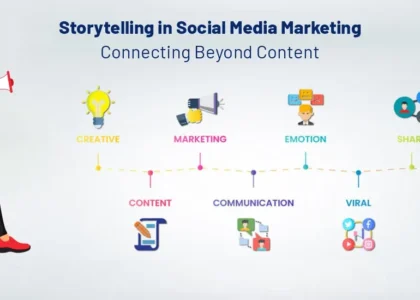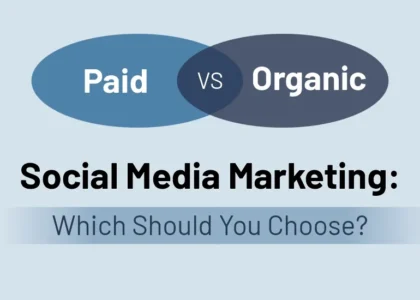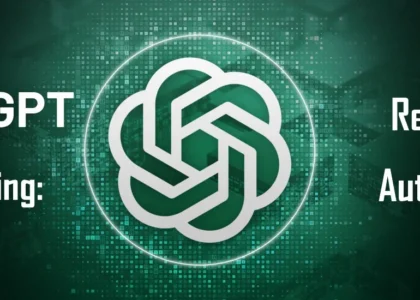Are you struggling to keep up with social media algorithms? Here is a detailed guide to effectively reaching the right audience for you!
Introduction to social media algorithms
As we continue to work hard to bring our brand to the top of those rankings and feeds, many still struggle to get your website ranked or to be seen. Want to know the secret to engaging posts? The secret sauce for engaging posts is staying updated with the social media algorithm along with diverse characteristics and endless strategies of social media marketing. You can also bring your brand profile and posts to the top! Whether you are a marketer, business owner, or brand manager, understanding how algorithms work can significantly improve your social media analytics and gain engagement, rank better, and reach your right audience.
In this blog, we will explore essential information about social media algorithms and effective tactics to keep your content thriving on top of those social media rankings!
Understanding social media algorithms
Social media algorithms are rules that determine what type of content and ads are shown to users based on personalized interests and past engagements, which can be classified by analyzing and monitoring user signals, likes, shares comments, etc.
Here is a detailed process of how social media algorithms work:
- Algorithms collect data about user’s preferences, interests, and behaviors personalized on their device and profile for every user worldwide.
- Algorithms then rank content based on the highest probability of keeping the user engaged.
- And then algorithms work to recommend the most relevant content to the user, which is likely to keep the user interested.
Algorithms use types of various available information about the users to recommend compelling and interesting content individually. The key elements to determine in these informations are:
- Audience demographics: audience demographics like age, gender, location, interests, and other things are considered.
- Relevance: The relevance of different types of content is evaluated by the algorithms to select the most relevant content and rank it on social media platforms.
- Engagement timings: The engagement timings are hours of the day when your potential audience is most active on the platforms. You can monitor that from the engagement analytics and look for the most engaging time of your posts to time your posting schedule effectively.
Why do the social media algorithms keep changing?
The algorithm of social media platforms keeps changing due to the constantly evolving audience behavior and preferences. As time passes, people shift their preferences to newer trends, and platforms need to improve engagement and user experience. Hence, the algorithm has to keep up with these changes to serve relevant and engaging content to the user and drive engagement, reach, and traffic for the brand.
Ways to stay updated with the social media algorithm
- Follow blogs and websites in your niche.: Following blogs and websites in your niche may offer valuable insights into the industry, new trends, and the latest preferences of your potential audience.
Many blogs and websites like HubSpot, Hootsuite Examiner, etc. cover the algorithms from time to time.
- Join active groups and communities on social media platforms: Many social media platforms offer groups and communities for specific topics and concerns. You can search groups and communities for social media algorithm trends and updates and follow them.
Some of the platforms are Facebook, Twitter, Reddit, etc.
- Subscribe to newsletters: There are many newsletters available that offer detailed social media marketing insights, tactics, and strategies for social media algorithm updates and trends, etc.
You can subscribe to Sprout Social’s social media insights, Hub Spot’s marketing blog newsletters, and the Buffer blog newsletter.
- Be a part of webinars and conferences: Social media marketing webinars and conferences are profound sources of information regarding social media algorithms and updates. Lastly, actively discuss tactics and strategies so it is highly valuable to take part in them for the brands.
Adapting strategies for algorithm changes
1. Create engaging content: Creating high-quality and engaging content is the easiest and most effective strategy for adapting to algorithm changes. The more likes, shares, and comments your post gets can significantly help your posts rank up in the algorithm. Hence reaching a wider audience.
2. Optimize new features quickly for their full potential: Social media platforms actively add new features for new ways to engage and share your content on the platforms. Brands need to quickly optimize these features and leverage them for the best results.
For example: Instagram reels, stories, Facebook stories, short videos, and YouTube shorts.
3. Focus on the audience in your niche: You can use the specific keywords and captions used in your niche that are classified by the algorithm and then recommended to the users who often engage with related content, which can significantly help you reach the target audience in your niche.
4. Monitor insights and analytics: Monitoring insights and analytics offered by social media platforms can help cater to your exclusive needs and give you a complete analysis of your profile performance and post-engagement rates. You can use those to improve your brand’s performance.
Conclusion
Staying updated with social media algorithms is useful and needed for brands to reach their brand objectives and goals through social media marketing. The algorithm for social media is highly effective for reach and engagement. It’s crucial to follow key industry experts, subscribe to relevant blogs, attend webinars, and experiment with content strategies. Monitoring platform announcements and staying active in community forums or groups can also help keep you informed. The right knowledge and strategies are beneficial and can help you be the ultimate leader.
FAQs
Q1: What are social media algorithms?
Ans: Social media algorithms are rules that determine what type of content and ads are shown to users based on personalized interests and past engagements.
Q2: Are hashtags important for algorithms?
Ans: Hashtags are still used but not as relevant now; instead, you can use related keywords to classify your content for better engagement.
Q3: How do I measure success with social media algorithms?
Ans: Track metrics like reach, engagement, clicks, and conversions to understand how well your content is performing and adjust accordingly.
Q4: Does engagement still matter in algorithms?
Ans: Yes, engagement (likes, comments, shares) is still a key factor in most algorithms for determining content visibility.
Q5: How do social media algorithms work?
Ans: Social media algorithms collect data, rank relevant content, and recommend engaging content to the user based on their interests and preferences.





